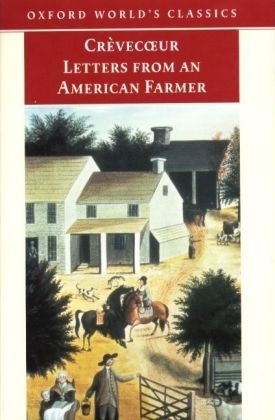
Letters from an American Farmer
Seiten
1998
|
New edition
Oxford Paperbacks (Verlag)
978-0-19-283898-8 (ISBN)
Oxford Paperbacks (Verlag)
978-0-19-283898-8 (ISBN)
- Titel ist leider vergriffen;
keine Neuauflage - Artikel merken
Written by an emigrant French aristocrat turned farmer, this text has a good claim to be regarded as the first work of American literature, at once intensely interesting in its own right, and casting influence on both subsequent American writers and European travel accounts of the new nation.
'to the European, the American is first and foremost a dollar-fiend. We tend to forget the emotional heritage of Hector St John de Crevecoeur' When D.H. Lawrence made this statement in his Studies in Classic American Literature, he was thinking of the Letters from an American Farmer. First published in England in 1782, the Letters came at a timely moment as attention was focused on America in the closing year of the Revolutionary War of Independence. Crevecoeur's famous question 'What, then, is the American, this new man?' was a matter of great interest, as it became evident that America, that new nation, was taking shape before the eyes of the world. Some of American literature's most pressing and recurrent concerns are adumbrated in the substance and style of the Letters: in addition to the question of American identity, they celebrate the largeness and fertility of the land, personal determination, and freedom from institutional oppression.
Darker and more symbolic elements complicate the initially sunny picture, however: the issue of slavery is raised in a particularly disturbing episode, and the final Letter, 'Distresses of a Frontier Man,' dramatizes the disintegration of the rational enlightened society of agrarian America into a nightmare of confusion, incomprehension and premonitions of unspeakable evil. Written by an emigrant French aristocrat turned farmer, the Letters from an American Farmer has a good claim to be regarded as the first work of American literature, at once intensely interesting in its own right, and casting a long shadow of influence on both subsequent American writers and European travel accounts of the moral, spiritual and material topography of the new nation.
'to the European, the American is first and foremost a dollar-fiend. We tend to forget the emotional heritage of Hector St John de Crevecoeur' When D.H. Lawrence made this statement in his Studies in Classic American Literature, he was thinking of the Letters from an American Farmer. First published in England in 1782, the Letters came at a timely moment as attention was focused on America in the closing year of the Revolutionary War of Independence. Crevecoeur's famous question 'What, then, is the American, this new man?' was a matter of great interest, as it became evident that America, that new nation, was taking shape before the eyes of the world. Some of American literature's most pressing and recurrent concerns are adumbrated in the substance and style of the Letters: in addition to the question of American identity, they celebrate the largeness and fertility of the land, personal determination, and freedom from institutional oppression.
Darker and more symbolic elements complicate the initially sunny picture, however: the issue of slavery is raised in a particularly disturbing episode, and the final Letter, 'Distresses of a Frontier Man,' dramatizes the disintegration of the rational enlightened society of agrarian America into a nightmare of confusion, incomprehension and premonitions of unspeakable evil. Written by an emigrant French aristocrat turned farmer, the Letters from an American Farmer has a good claim to be regarded as the first work of American literature, at once intensely interesting in its own right, and casting a long shadow of influence on both subsequent American writers and European travel accounts of the moral, spiritual and material topography of the new nation.
Susan Manning is University Lecturer in English and Fellow of Newnham College, Cambridge. She edited Washington Irving's The Sketch-Book of Geoffrey Crayon, Gent and Scott's Quentin Durward - both in World's Classics.
| Erscheint lt. Verlag | 22.10.1998 |
|---|---|
| Reihe/Serie | Oxford World's Classics |
| Co-Autor | Susan Manning |
| Zusatzinfo | map, bibliography |
| Verlagsort | Oxford |
| Sprache | englisch |
| Themenwelt | Literatur ► Briefe / Tagebücher |
| Literatur ► Zweisprachige Ausgaben ► Deutsch / Englisch | |
| Geisteswissenschaften ► Geschichte ► Regional- / Ländergeschichte | |
| ISBN-10 | 0-19-283898-9 / 0192838989 |
| ISBN-13 | 978-0-19-283898-8 / 9780192838988 |
| Zustand | Neuware |
| Haben Sie eine Frage zum Produkt? |
Mehr entdecken
aus dem Bereich
aus dem Bereich
Zweisprachige Ausgabe (deutsch/englisch) / Parallel gesetzter Text …
Buch | Softcover (2024)
Anaconda Verlag
6,99 €
(dt./engl.)
Buch | Softcover (2024)
Rohstoff (Verlag)
12,00 €


